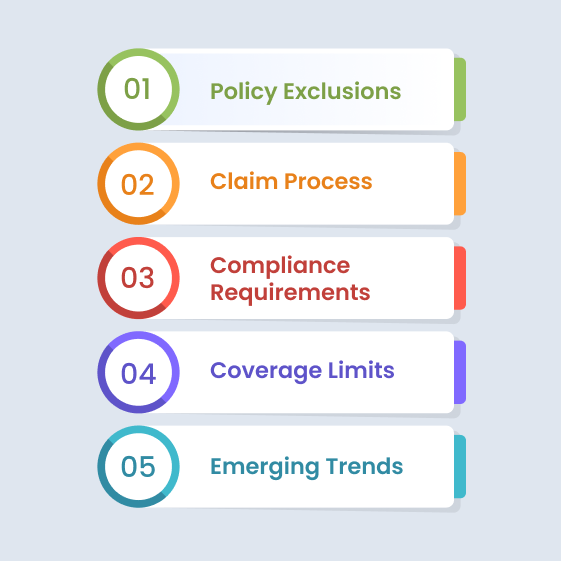Imagine a bustling coffee shop, filled with the aroma of freshly brewed coffee and the low hum of chatter. Amongst the patrons sits Sarah, diligently typing away on her laptop, connecting to her company’s network via the public Wi-Fi. Little does she know, lurking amidst the comforting ambiance, lies a lurking threat—one that could jeopardise not only her work but also the entire business she represents.
The rise of remote work has been nothing short of meteoric, with a staggering 140 percent growth since 2005, outpacing the expansion of the workforce itself by tenfold. In today’s digital landscape, the benefits of remote work are undeniable, offering flexibility and efficiency for both employees and employers alike. However, with great convenience comes great risk, especially when remote workers access company platforms through unsecured Wi-Fi connections in coffee shops and airport terminals.

According to Nationwide Insurance’s fifth annual Business Owner Survey, a whopping 83 percent of business owners provide employees with the option to work remotely when necessary.
Yet, despite the widespread adoption of remote work, many businesses remain dangerously exposed to cyber threats. Shockingly, only 50 percent of small business owners have updated their remote work security policies in the past year, leaving gaping vulnerabilities in their defences.
Cyber Risks in Remote Work Environments:
Remote work environments present unique challenges when it comes to cybersecurity. The use of personal devices, unsecured networks, and potential lapses in security protocols make remote employees more susceptible to cyber threats.
According to the Nationwide survey, 65 percent of business owners admit they have been victims of cyberattacks, with computer virus attacks and phishing being the most common types reported.

One of the biggest concerns for businesses is the use of public Wi-Fi networks in remote work settings. Despite the convenience they offer, these networks pose significant security risks. As Catherine Rudow, vice president of cyber insurance at Nationwide, warns, “What may seem like a harmless public Wi-Fi network could ultimately pose serious troubles for a business.
Importance of Cyber Insurance for Remote Workers
In light of the growing prevalence of cyber threats, cyber insurance has emerged as a critical safeguard for businesses, especially those with remote employees. Cyber insurance, also known as cyber liability insurance or data breach insurance, provides coverage against financial losses resulting from cyber attacks, data breaches, and other cyber-related incidents.
Despite the potential damage from cyber threats, the Nationwide survey found that only four percent of business owners have implemented all of the cybersecurity best practices and recommendations from the U.S. Small Business Administration.
This highlights the urgent need for businesses to invest in comprehensive cybersecurity measures, including cyber insurance, to protect against the ever-evolving threat landscape.
In today’s digital age, cyber threats are on the rise, and businesses of all sizes are vulnerable. With the shift towards remote work, ensuring cyber security for remote employees has become a critical concern.
One effective solution to mitigate these risks is cyber insurance. In this blog post, we will explore the importance of cyber insurance for remote workers, its benefits, and key considerations for businesses.
Importance of Cyber Insurance for Remote Workers

1. Increased Cyber Threats
Remote work environments are more susceptible to cyber threats due to the use of personal devices, unsecured networks, and potential lapses in security protocols. Cyber insurance provides financial protection in case of a breach.
2. Coverage for Data Breaches
Data breaches can lead to significant financial losses, reputational damage, and legal liabilities. Cyber insurance covers the costs associated with data breach notifications, forensic investigations, and legal expenses.
3. Business Interruption Coverage
Remote employees rely heavily on technology to perform their tasks. Cyber insurance includes coverage for business interruption due to cyber attacks, ensuring continuity even during disruptions.

4. Ransomware Attacks
Ransomware attacks are a growing concern. Cyber insurance covers ransom payments, data recovery costs, and loss of income during downtime.
5. Third-Party Liability
Remote workers interact with clients, vendors, and other third parties. Cyber insurance provides liability coverage in case a third party sues your business due to a cyber incident.
Key Considerations for Cyber Insurance

- Policy Exclusions: Understand the exclusions in your cyber insurance policy. Some policies may exclude certain types of attacks or specific industries.
- Claim Process: Familiarise yourself with the claim process. Prompt reporting and documentation are essential for a successful claim.
- Compliance Requirements: Ensure that your cyber insurance policy meets industry-specific compliance requirements. For example, healthcare and financial institutions have specific regulations.
- Coverage Limits: Evaluate the coverage limits based on your business’s size and risk exposure. Consider factors like revenue, data volume, and potential legal costs.
- Emerging Trends: Stay informed about emerging cyber threats and trends. Cyber insurance policies should adapt to new risks.
Mitigata, as a cyber insurance provider, understands the unique challenges faced by remote workers. Our tailored policies offer comprehensive coverage, including:
- Cyber attack insurance
- Network security insurance
- Cyber risk insurance
- Business interruption insurance cyber
- Cybercrime insurance
- Cyber policy insurance
Closing Thoughts…
Cyber insurance is a crucial component of any comprehensive cyber security strategy, especially for remote employees. By partnering with Mitigata, businesses can protect their assets, reputation, and financial stability in an increasingly digital world.
Remember, Mitigata can help you to safeguard your remote workforce and protect your business from cyber threats. Invest in Mitigata Smart cyber insurance to ensure your business’s resilience and long-term success in the digital age.

